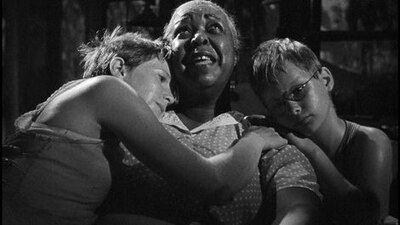Edward Anhalt
About
Biography
Biography
After working as a journalist and documentary filmmaker for Pathe and CBS-TV, Edward Anhalt teamed with his wife Edna (nee Richards) during World War II to write pulp fiction. After the war, they graduated to writing screenplays for thrillers, initially using the joint pseudonym Andrew Holt. Put under contract by Columbia, the Anhalts scripted "Bulldog Drummond Strikes Back" (1947). After a stint at Twentieth Century Fox during which they earned an Oscar for the screen story to the urban thriller "Panic in the Streets" (1950), the husband and wife team returned to Columbia as writer-producers. Perhaps their most notable effort was the 1952 screen version of Carson McCullers' "The Member of the Wedding" which preserved the stage performances of Julie Harris, Brandon De Wilde and Ethel Waters. After the couple divorced, Anhalt proved a versatile, consistently effective (and reputedly speedy) scenarist. He penned the superb adaptation of Irwin Shaw's WWII novel "The Young Lions" (1958) and the slick "Wives and Lovers" (1963). The screenwriter earned a second Academy Award for his excellent adaptation of Jean Anouilh's play "Becket" (1964), Subsequent solo outings included "The Boston Strangler" (1968), "The Madwoman of Chaillot" (1969) and two for Ely A. Landau's American Film Theatre, "Luther" (1974) and "The Man in the Glass Booth" (1975).
In the early 1970s, Anhalt returned to the small screen, earning a well-deserved Emmy nomination for the acclaimed ABC miniseries "QB VII" (1974). Three years later, he scripted the Frank Sinatra vehicle "Contract on Cherry Street" (NBC) and contributed to the small screen remake of "Madame X" (NBC, 1981) and the biblically inspired "The Day Christ Died" (CBS, 1982). Anhalt was also the guiding force behind the lavish 1985 NBC miniseries "Peter the Great."
Filmography
Cast (Feature Film)
Writer (Feature Film)
Producer (Feature Film)
Writer (TV Mini-Series)
Life Events
1935
Wrote the documentary "Problem Child"
1937
Was camera operator and editor working under Willard Van Dyke
1946
With wife Edna, wrote "Avalanche" and "Strange Voyage" under the joint pseudonym Andrew Holt
1950
With Edna, provided story for "Panic in the Streets"; won Oscar
1952
Produced (with Edna Anhalt) "My Six Convicts", "Eight Iron Men" and "The Member of the Wedding"
1958
Wrote "The Young Lions"
1964
Earned second Oscar for penning screen adaptation of "Becket"
1968
Scripted "The Boston Strangler"
1969
Adapted "The Madwoman of Chaillot"
1972
With John Milius, co-wrote "Jeremiah Johnson"
1974
Adapted "Luther" for the screen, produced under the auspices of American Film Theatre
1974
Scripted the ABC miniseries "QB VII"; earned Emmy nomination
1975
Wrote screen adaptation of Robert Shaw's play "The Man in the Glass Booth", also produced by American Film Theatre
1977
Wrote the NBC TV-movie "Contract on Cherry Street", starring Frank Sinatra
1980
Co-wrote the CBS TV-movie "The Day Christ Died"
1985
Scripted the NBC miniseries "Peter the Great"
1985
Last screenplay, "The Holcroft Covenant"; co-written with George Axelrod and John Hopkins
1990
Last produced script, the TV-movie "The Take"
Videos
Movie Clip












Trailer



















